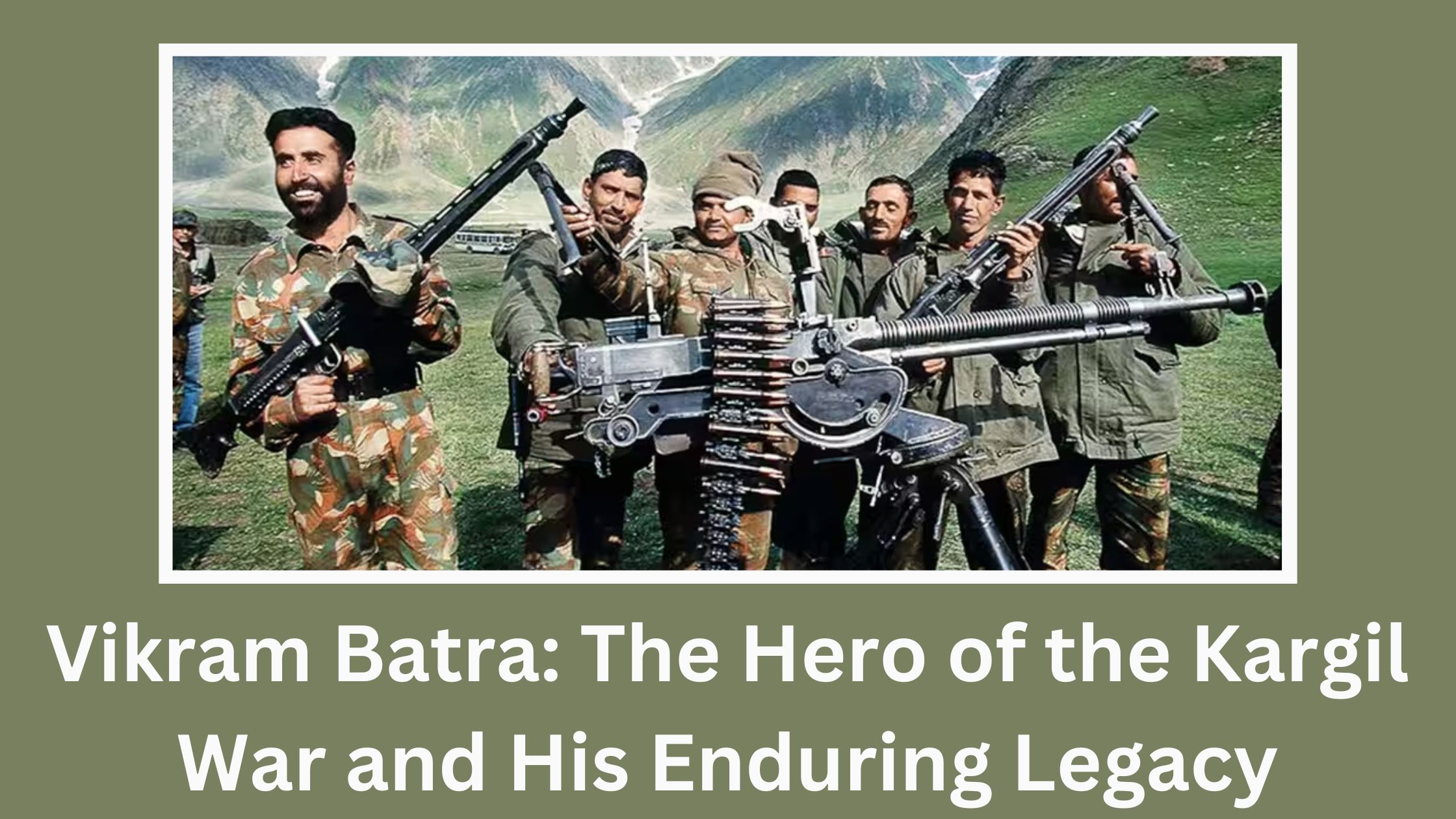
This day marks the end of the Kargil War between the Indian and Pakistani armies in 1999, which lasted around 60 days and concluded on July 26th with India’s victory. Kargil Vijay Diwas is dedicated to honoring the Indian soldiers who sacrificed their lives in the conflict especially of Vikram Batra.
The fearsome bravery of Vikram Batra
Captain Vikram Batra, a Param Vir Chakra awardee from Himachal Pradesh, played a crucial role in the Kargil War. His bravery was so renowned that even his enemies feared him. Captain Batra gave his life fighting for the country. Born on September 9, 1974, in Ghuggar village, Palampur, Kangra district, he was known as “Sher Shah” by his enemies during the war. His courage continues to inspire the nation.
The origin of the name Sher Shah
Despite having a lucrative job offer in the Merchant Navy in Hong Kong, Vikram Batra chose to serve in the Indian Army. On June 20, 1999, at 3:30 AM, Captain Batra and his team captured the crucial peak 5140, which overlooked the Srinagar-Leh road. After the victory, Batra famously signaled, “Ye Dil Maange More,” a phrase that became popular nationwide. For his exceptional bravery, Commanding Officer Lieutenant Colonel YK Joshi nicknamed him ‘Sher Shah’.
Vikram Batra, a youth icon of Kargil War
Though many years have passed since the Kargil War, the tales of Vikram Batra’s heroism continue to inspire enthusiasm in people. When young individuals hear his stories, they often express a desire to serve their country with the same dedication as Captain Batra. The legacy of Vikram Batra Kargil War hero remains a powerful symbol of courage and patriotism in India.
Vikram Batra: Inspiring Future Generations
Though many years have passed since the Kargil War, the tales of Vikram Batra’s heroism continue to inspire enthusiasm in people. When young individuals hear his stories, they often express a desire to serve their country with the same dedication as Captain Batra. The legacy of Vikram Batra, the Kargil War hero, remains a powerful symbol of courage and patriotism in India. His life and actions during the Kargil War serve as a reminder of the sacrifices made by the soldiers and the indomitable spirit of the Indian armed forces.
Vikram Batra’s Enduring Influence
The impact of Vikram Batra’s bravery during the Kargil War extends beyond the battlefield. His story has been depicted in books, documentaries, and films, ensuring that his heroics reach a wider audience. His indomitable spirit and the famous phrase “Ye Dil Maange More” resonate with people, embodying the unyielding spirit of the Indian soldiers. The commemoration of his bravery during the Kargil War also involves various events and tributes on Kargil Vijay Diwas, where people from all walks of life come together to honor his memory.
The Memorials of Vikram Batra Kargil war
Across India, several memorials and statues have been erected to honor Vikram Batra’s sacrifice in the Kargil War. Schools, institutions, and awards have been named after him to keep his legacy alive. These memorials serve as a place for people to pay their respects and draw inspiration from his life. The story of Vikram Batra, the Kargil War hero, continues to be a beacon of courage, motivating future generations to uphold the values of bravery, sacrifice, and patriotism.
Educational Initiatives Highlighting Vikram Batra’s Bravery
Educational programs and initiatives have been introduced to educate students about Vikram Batra’s role in the Kargil War. His story is included in textbooks, and schools often organize special sessions and activities to discuss his contributions. These efforts aim to instill a sense of national pride and valor among students, encouraging them to learn from Vikram Batra’s exemplary life.
In conclusion, the name Vikram Batra is synonymous with unparalleled bravery and selfless sacrifice. His contributions during the Kargil War are a testament to his dedication to the nation. As India continues to celebrate Kargil Vijay Diwas, the legacy of Vikram Batra remains a powerful reminder of the heroic deeds that ensure the nation’s security and freedom.







